8 AI-powered Project Management Tools to Leverage in 2021
According to a study conducted by Project Management Institute (PMI), 44% of projects led by high-performing organizations are facilitated using predictive analytics. From providing meaningful suggestions to detecting work patterns in a team, the significance of artificial intelligence (AI) in project management grows every day. AI is now an inevitable virtual partner for a project manager.
With the integration of AI, the need for human intervention in routine project management tasks has become minimal. AI empowers project managers by helping them drive this digital transformation forward.
Numerous AI-based project management tools have been developed, in recent years, to ensure that project managers are not overburdened by their responsibilities. Keep reading to learn which AI-powered project management tools you can leverage in 2021.
7 Project Management Processes to Augment With AI
The genesis of the field of project management can be traced to hardships that arose from having to manage multiple complex projects and people. Project management is no easy feat; managers tackle diverse projects with diverse needs while sustaining environments for people to work in unison. Ultimately, the project goals should align with the objectives of the business.
A process as complex as project management can always use more ease and efficiency. This is why AI is now an integral part of the domain. Here are 5 project management processes you can augment with AI:
1) Predictive Analytics
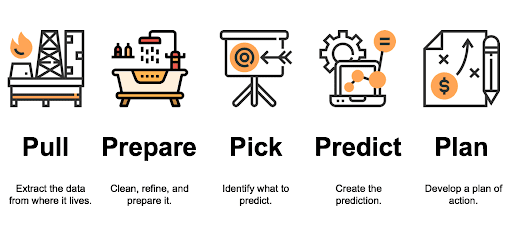
Source: Christopher S. Penn
Project management, without a doubt, deals with an immense amount of data. From customer information to project details, project managers have to wade through a sea of data that can be mined for information. To convert this raw data into valuable business insights, they leverage artificial intelligence. Not only does this help develop cognitive solutions for algorithms, but it also helps project teams pay attention to customer value creation.
2) Understanding the Project
According to a study conducted by Geneca, 31% of organizations reported that the primary reason for their project failure was the lack of a collective vision. It is imperative for a project team to understand the ins and outs of their projects and be on the same page about project requirements. AI can be incredibly supportive to project managers in this context. Machines can never have cognitive bias, nor will they derail the project’s growth trajectory by over-focusing on a certain area. That is, AI will not make prejudiced predictions. Project managers can rely on project insights provided by AI.
3) Prediction and Mitigation of Risks
Another study shows that 70% of projects are bound to fail. Projects fail due to a wide variety of reasons: scope creep, dearth of resources, and lack of support from stakeholders are some common culprits.
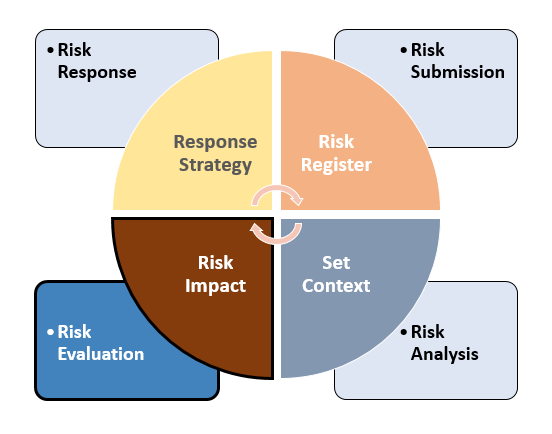
Source: Zilicus
By using the best project management tools available in the market, project managers can detect potential risks and address them prudently. AI gives them enhanced proactive control over projects, including better administration and productivity. As a result, projects attain enhanced visibility across various spectrums. This allows them to mitigate minor risks before they grow into greater risks.
4) Automation of Tasks
When provided with enough data, AI can automate repetitive tasks that usually discourage humans. Mundane, hefty tasks do not tire machines! Though the actual scope of such tasks could vary depending on the nature of the project, AI can reduce the need for human intervention in carrying out routine tasks. This certainly enables project managers to work on more complex, yet important tasks.
5) Interpretation of Project Management Data
Artificial intelligence software is capable of handling huge chunks of data; by scanning through data from various sources, it can provide actionable insights and meaningful information. Not only does AI take over the time-consuming process of collating huge amounts of data, but it also detects patterns that are invisible to human eyes. AI software is adept at identifying connections in data. The data is then structured, inconsistencies are identified, and connections are established. With AI, project managers can extract valuable information from the largest data sets.
6) Prioritization of Tasks
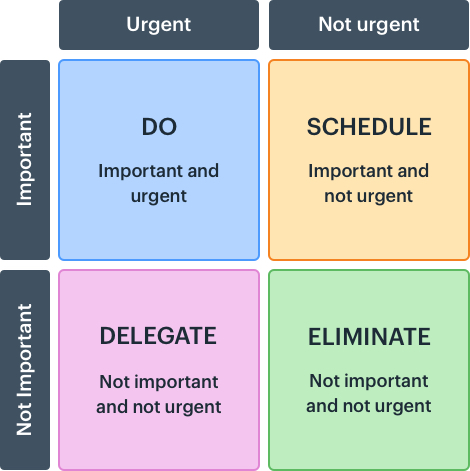
Source: Kissflow
When working in large teams, it may be slightly unrealistic to expect things to go well all the time, especially when it comes to prioritizing tasks. With artificial intelligence, project managers receive ample assistance in helping teams understand their priorities. By providing appropriate data, the AI system can help managers make decisions about which tasks need more focus.
7) Resource Allocation
Project management is a complex process that involves multiple departments and domains. Effective resource allocation is a central factor that influences the growth trajectory of projects. But, non-biased checks on the lack of resources are not always achievable. This is where AI steps in. AI performs non-prejudiced inspections, based on rules laid out by project managers, to deduce the shortage of resources. Based on the inferences made from this process, project managers can allocate resources accurately.
8 AI-powered Project Management Tools You Can Leverage in 2021
The trick to becoming a better project manager is by streamlining workflow, facilitating the delivery of reliable outcomes, and, of course, coaching team members to maximize their productivity. But, during the process, project managers end up tending to an array of administrative tasks that rob them of their time.
Thanks to artificial intelligence, the cognitive solutions provided by AI systems help project managers gain more actionable insights into risk mitigation, stakeholder engagement, and management of project constraints. These systems also automate mundane tasks, thereby saving time and money.
Here are the top project management tools that you can leverage in 2021:
1) ProofHub
ProofHub is one of the most efficient agile project management tools that help project managers with project management, resource management, collaboration, and task management. It is an exceptional cloud-based, multi-purpose tool that comes with all the features a project team needs to deliver projects within time constraints.
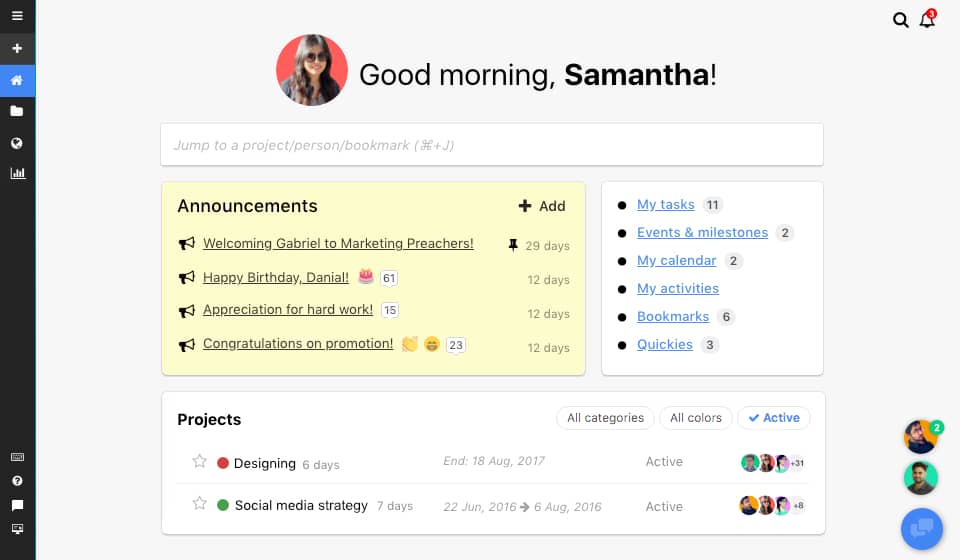
Source: Proofhub
Your team can even do away with those baffling, long email threads to discuss your projects; with ProofHub, it is easy to bring your team and clients together to have conversations. It also has a reporting engine to create custom reports.
2) Trello
Trello is one of the most frequently used free project management tools. It allows people to put tasks on a board and check them off upon completion. With Trello, the process of visualizing tasks becomes easy; not only can it help you keep things on track, but it also gives you a complete picture of where you are headed, in terms of project growth.
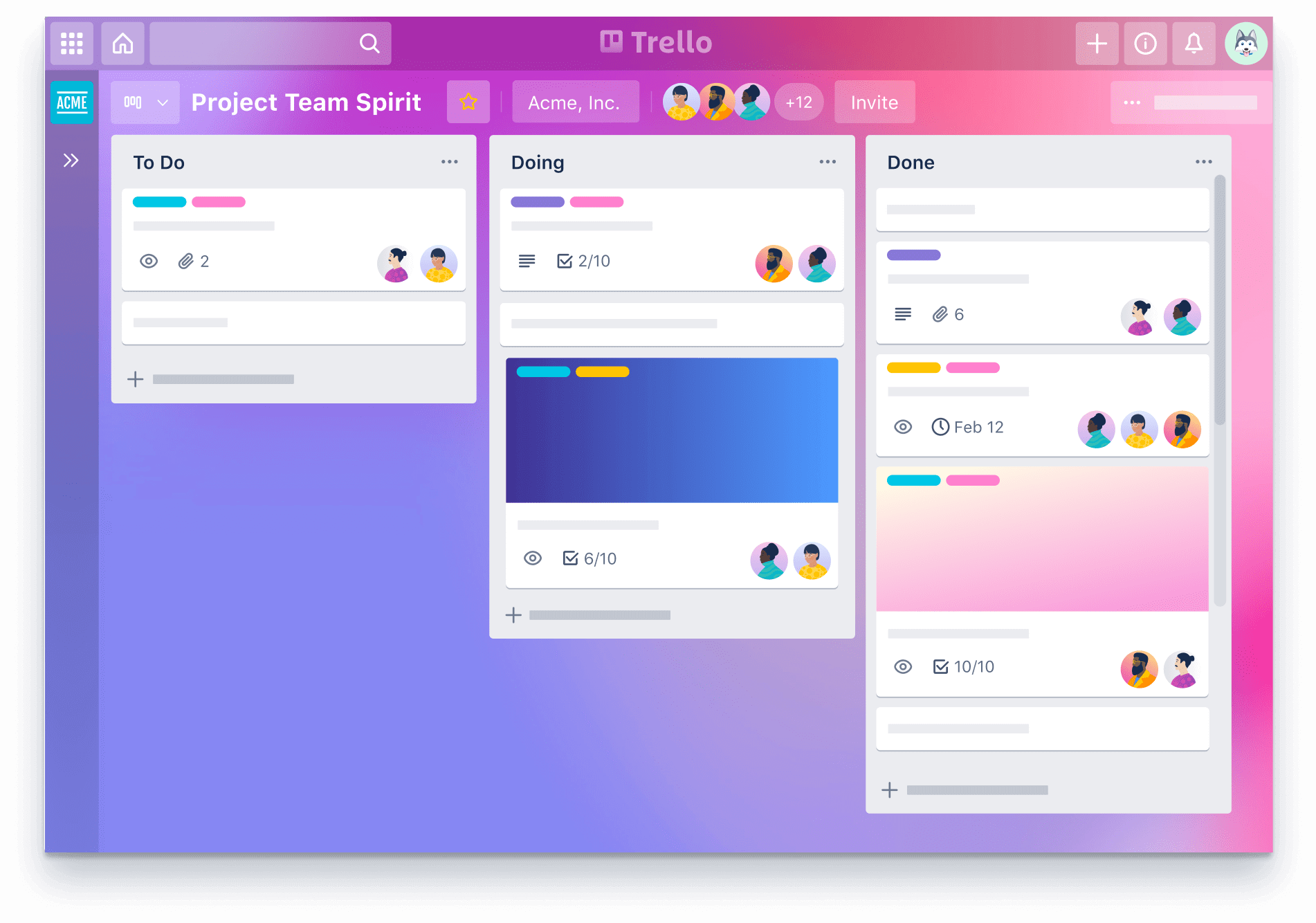
Source: Trello
Trello’s in-built AI-based search function gives you suggestions when you want to initiate conversations with someone or invite a team member to a certain project. Trello also keeps everyone in the loop by notifying them about changes made in the system.
3) ClickUp
ClickUp is one of the most popular software project management tools that enable single-glance organization of projects. With ClickUp, you can collaborate with your team and track your progress easily. It is mostly used for task management and time management and gives you access to a number of task management tools, documents, and wikis.
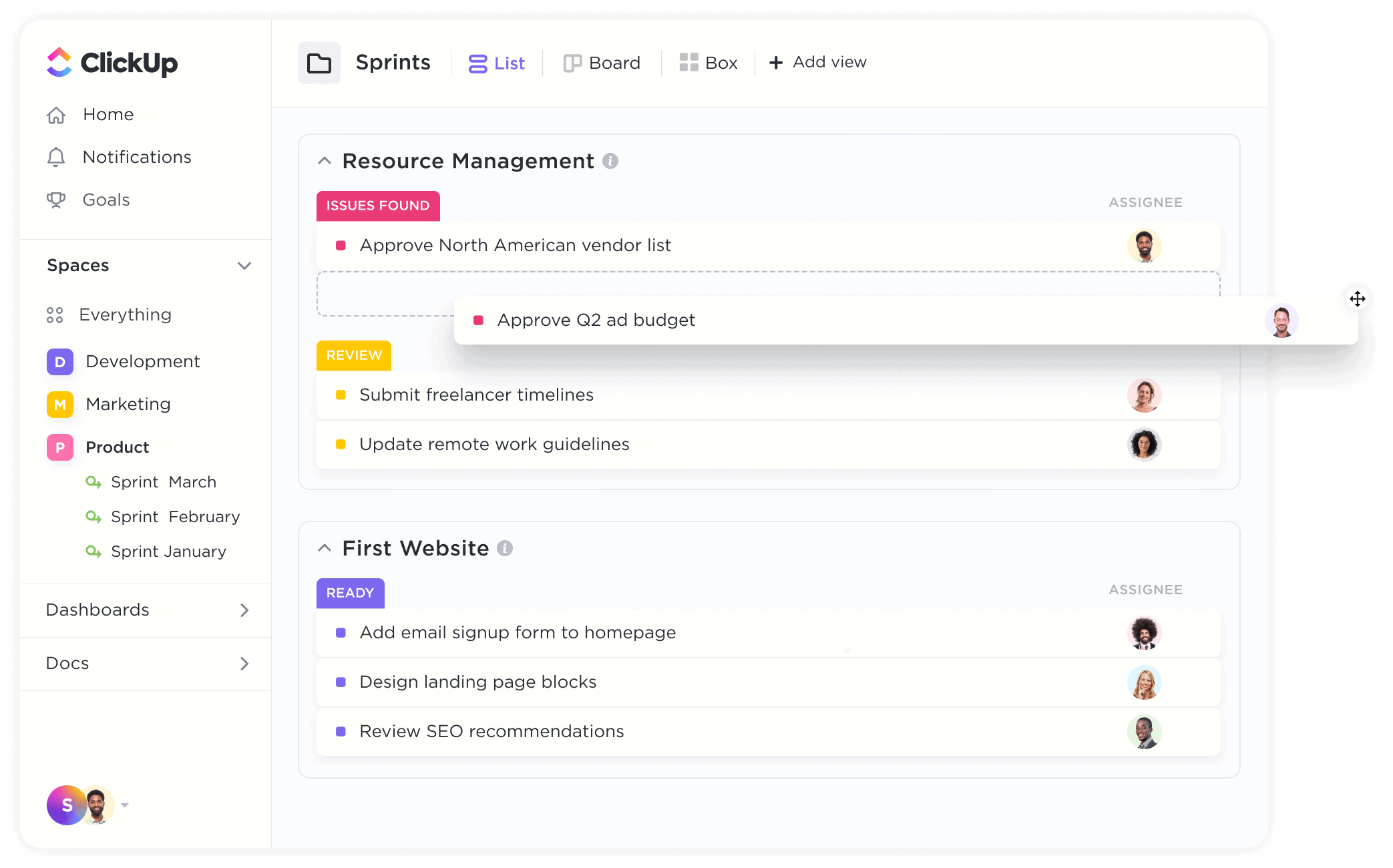
Source: Clickup
The best part about this software is that it can be easily integrated into a number of other popular online project management tools. It also helps you analyze dependencies between tasks by creating Gantt charts. This AI system is capable of generating reports from notes and timesheets that are fed into it.
4) Asana
Asana is one of the most commonly used project management tools today. Integrating Asana into your project management is one of the quickest ways to track your tasks and get results. You will always be updated on the status of your project; it keeps everyone in the loop by telling you who is doing what and by what time.
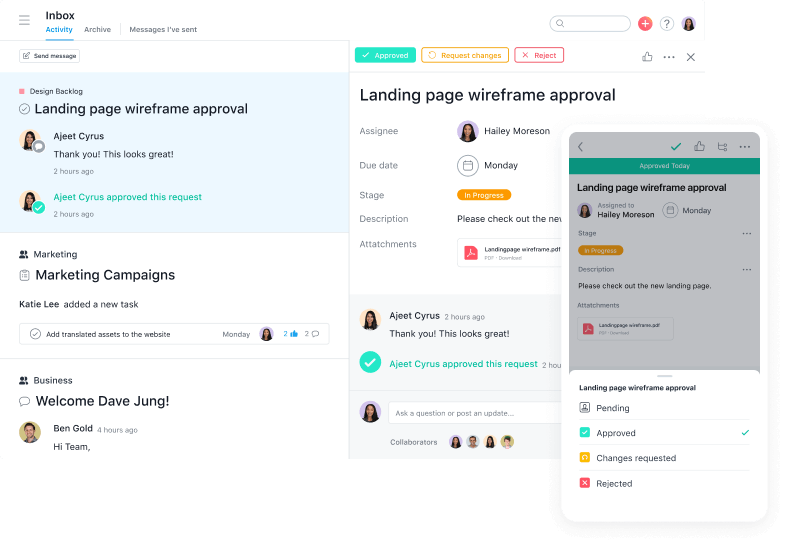
Source: Asana
Asana helps you minimize time wasted on communication and enables you to focus on getting things done. With its custom project templates, you need not rely on spreadsheets, lengthy email trails, or other complex tools.
5) Wrike
Wrike is one of the most versatile project management tools available to project managers. It has a simple user interface that is combined with quality features to help you coordinate and track your projects. If you are juggling multiple projects in a very distributed work environment, Wrike is the tool you need. It helps you make your projects collaborative, visual, and easy to organize.
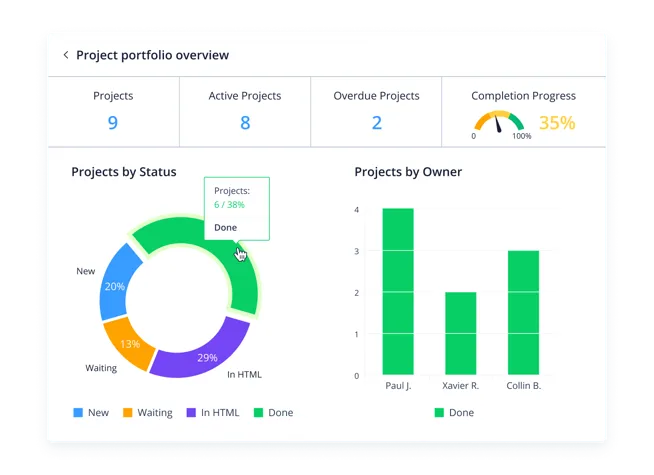
Source: Wrike
Each project can be compartmentalized into tasks that are then assigned to team members by the project owner. Available in 9 languages, this SaaS-based product offers automated approval systems and visual proofing.
6) Basecamp
If you are looking for ways to better organize your team and maximize their productivity, Basecamp is the project management software you need. It is one of the most efficient cloud-based project management tools. Basecamp organizes your tasks by default without your intervention. This flexible system even lets you turn its features on or off! The notifications are centralized, helping users stay uninterrupted.
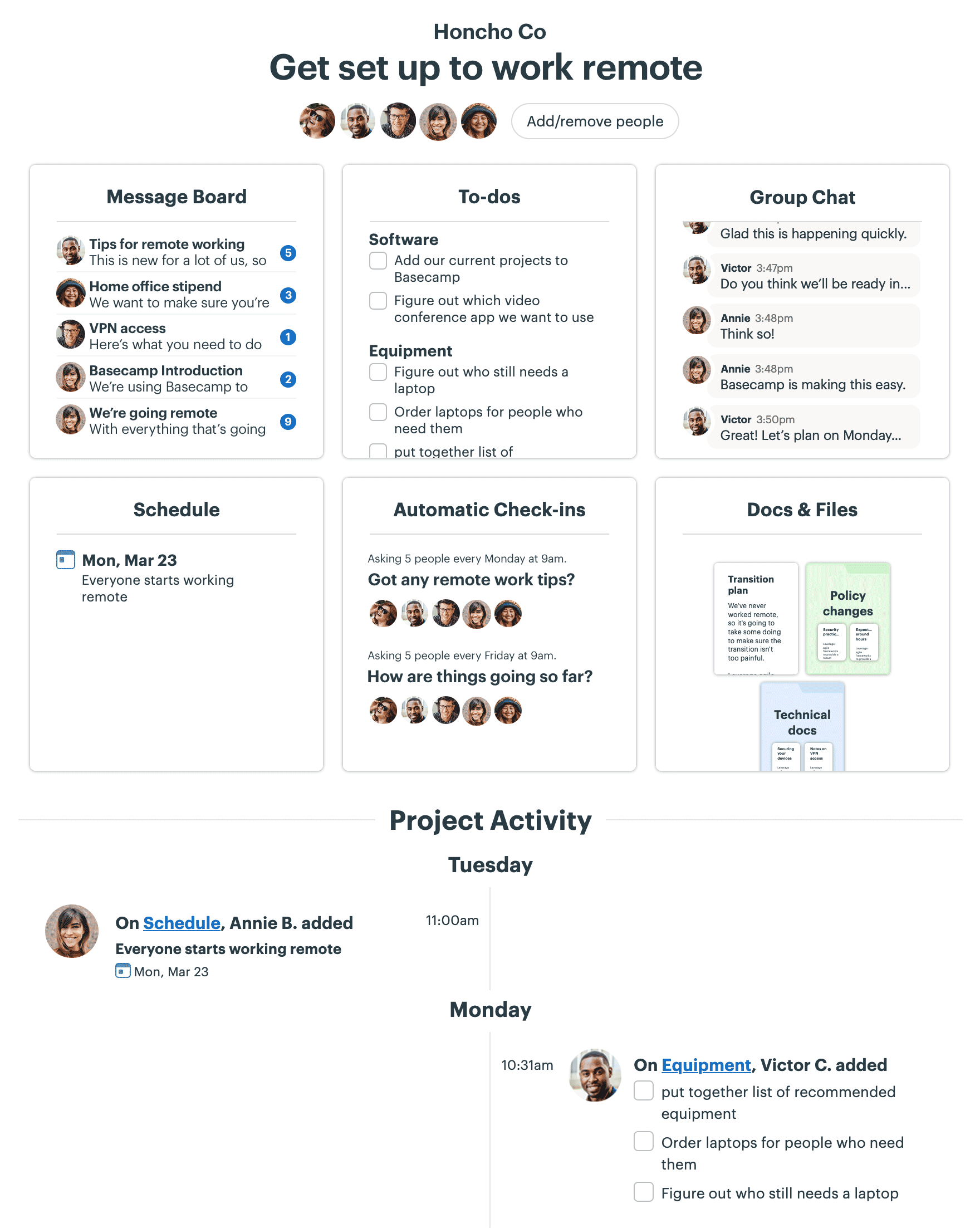
Source: Basecamp
With Basecamp, you can set up your projects, measure progress, add or remove people for communication, and manage your message board. Apart from the easy coordination of projects, a reasonable price range and a simple user interface are two compelling features of this software.
7) Teamwork
Teamwork is yet another cloud-based project management software that offers various functionalities to manage project operations. It is the most suitable for small project teams and freelancers. Some of its attractive features include time tracking, task listing, messages, and file uploads.
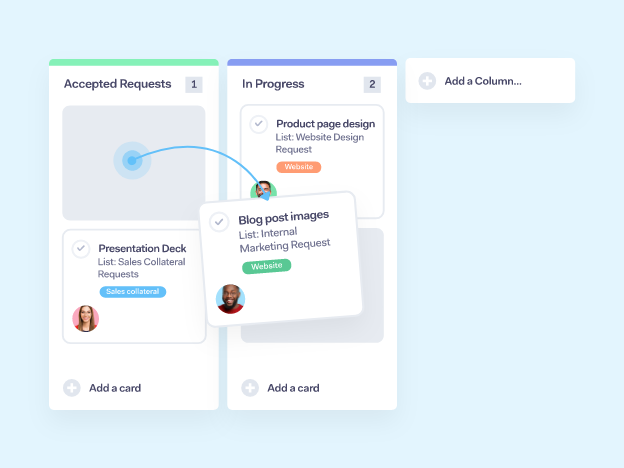
Source: TeamWork
With this software, you can easily tackle your group objectives while establishing your business processes. Its client-billing feature helps you generate invoices based on working hours and expenses. This software can be easily integrated with other software applications, such as Dropbox and FreshBooks.
8) Project Insight
Project Insight is a monolithic system that offers high-productivity tools to provide real-time information to stakeholders and team members. It helps you centralize all your projects and tasks on a single platform.
This tool’s automation capabilities let you coordinate your projects, portfolios, and work systems using centralized collaboration. It also aggregates your tasks from your company’s HR software, warehouse, finance, development, CRM, and support.
The growing need for project-oriented work environments and the ever-evolving technical landscape have increased the demand for AI-based solutions in project teams. There is no denying that nothing can substitute human intuition or feelings. But, project managers need AI to stay relevant in this age of information. By leveraging quality AI tools, project managers can add more value to their team by optimizing their operations.
Want To Become a Certified Project Manager? Sign Up for a Bootcamp Now!